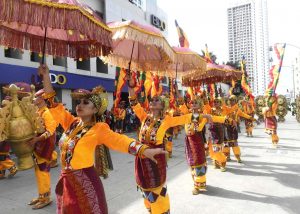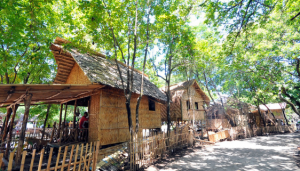TO ADDRESS challenges in agriculture, the approach should be less about techno-fixes and be more toward farmer-centric grounded solutions, an advocacy group said.
Magsasaka at Siyentipiko para sa Pag-unlad ng Agrikultura (Masipag) Mindanao regional coordinator Leo XL. Fuentes Jr. said that trends of technological fixes are unfit, especially for small-scale farmers considering the financial and environmental costs.
Technological fixes are the use of engineering or technology to solve a problem. Fuentes Jr. said drones may help with crop surveillance but should not be the last resort.
“Well, we are not against technology, as it makes everything convenient, and makes delivery of work more efficient, however, is this really the felt need of the farmers?” Fuentes said.
The regional coordinator stressed lack of access to resources such as land and inputs are the main problem of the farmers that should be prioritized.
“According to the Philippine Statistics Authority, 78% of farmers only own three hectares and less, aside from lack of access to the land resource, there is also a lack of access to input such as seeds, fertilizer, and pesticides,” he said.
“ Well, technology is a big help, but we should be cautious, that is really the drone technology or sensors that they need,” Fuentes added.
Fuentes also explained that solutions must be more sustainable types of technology according to the perceived needs of the farmers.
Mariano Naez, 69, a farmer at Tuboran, North Cotabato stressed that in his experience as a farmer, any technology, program, and project for the farmers that is not grounded on the actual conditions of the farmer will never be farmer-centric.
For instance, production tools that farmers use in lowland and upland differ from those that only the farmers can identify for themselves, he said.
“ Ako isip mag-uuma, dili ko anti-development, pero kung ang development, wala na na-haum didto sa panginahanglan sa mag-uuma, dili gyud na [effective],” Naez said.
“ Ang akong pag-tan-aw sa bisan unsa mang kalambuan diha sa agrikultura, manukad didto sa kahimtang sa mga mag-uuma,” he added.
Naez stressed modern technology in farming is unfit for small-scale farmers as they are incapable of purchasing even small farming tools, and land preparation to harvest is costly enough to purchase technologies introduced to them.
“ Mahimong malambo lang kung ang mag-uuma mismo kung sila ang mag-identify sa ilang panginahanglan, may kasiguraduhan sa yuta, ug sila ang mag determina, mag kontrol, sa tanang kagamitan gikan sa binhi, tools, ngadto sa produksyon,” he added.
Masipag is a farmer-led network of people’s organizations, non-government agencies, and scientists that seeks a more sustainable approach and farmer-centric management of biological and agricultural resources.
One of their programs is developing sustainable agroecosystems, encouraging the farmers including but not limited to shifting from mono-cropping to a more diversified and integrated farming system, chemical to organic, and converting from individual management to community-wide.
They provide technical support and informed decision-making in soil fertility, alternative pest management, cropping, and farm integration systems. Naez is a member of Masipag and leads 11 of his community of farmers that employ farming integration.
Masipag Mindanao along with Metsa Foundation, Action Group on Erosion, Technology and Concentration organized a forum on Peasant Science on Nov. 24 to discuss more grounded solutions amid the growing trend of corporate culture in agriculture.




